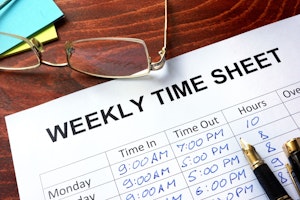If you are someone who sleeps less than six hours on weeknights, you are what sleep researchers call a “short sleeper.” Unfortunately, there are a lot of people getting far less sleep than they need. Recent surveys show that more than a third of American adults say they get less than seven hours of sleep during the week.
Can you guess what is keeping people from getting more sleep?
 Work. According to a national time-use survey of 124,000 American workers, these “short sleepers” worked 1.5 more hours on weekdays and almost 2 hours more on weekends and holidays compared to normal sleepers. Closely related to work, commuting was ranked second in the survey of things people are doing instead of sleeping.
Work. According to a national time-use survey of 124,000 American workers, these “short sleepers” worked 1.5 more hours on weekdays and almost 2 hours more on weekends and holidays compared to normal sleepers. Closely related to work, commuting was ranked second in the survey of things people are doing instead of sleeping.
These results are alarming, especially when we know that sleep is such an important part of our well-being. Scientific evidence proves that insufficient sleep is associated with many health conditions such as obesity, diabetes and high blood pressure. Statistics from the U.S. Department of Transportation indicate drowsy driving causes an estimated 80,000 automobile accidents each year — about 1,000 of them are fatal.
So who are these sleep-deprived workers?
The survey said that about 60% of them work multiple jobs. Many of them do more traveling, starting their travel earlier in the day and stopping later in the evening than people who got more than seven hours of sleep each night. The travel pattern peaked around 7 a.m. and 5 p.m. which suggests that the travel is for the commute to and from work. There did not seem to be a difference between private sector and government workers, but the self-employed group had much lower odds of coming up short on sleep.
Ironically, among the top four things American workers reported doing rather than sleep is “tossing and turning” – that’s right, trying to get to sleep. Insomnia is associated with a variety of workplace problems such as absenteeism, lower job performance, lapse in ethical judgment, and on-the-job accidents or injuries.
 Clearly, employers have a vested interest in the amount of sleep their work force is getting because it affects their bottom line. The authors of the survey proposed more work schedule flexibility as a solution to reduce sleep loss among American workers. Shifting morning start times later could allow people to get more sleep, even if the total work day hours is unchanged, they said.
Clearly, employers have a vested interest in the amount of sleep their work force is getting because it affects their bottom line. The authors of the survey proposed more work schedule flexibility as a solution to reduce sleep loss among American workers. Shifting morning start times later could allow people to get more sleep, even if the total work day hours is unchanged, they said.
While companies can help their employees in some ways, at the end of the day, it’s up to the individual to manage their personal and professional obligations to get enough sleep for optimum performance at work and to lead a healthy lifestyle.
